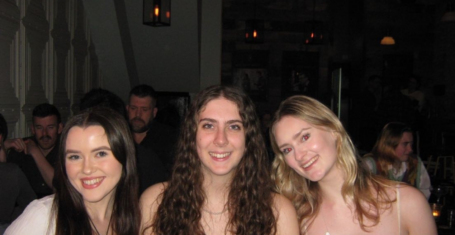
It’s Really Just Extensive Research…
“If it comes up on your newsfeed it doesn’t count as stalking”.
“If it comes up on your news feed it doesn’t count as stalking…” The common justification for knowing about a controversial new friendship, when someone’s relationship status changed, or who went where last night.
Of course these aren’t things we need to know, but we all know how difficult it is to resist the temptation to click that link on your ticker and find out exactly which photo that boy from your course commented on, or who the girl tagged in what can only be a victim of Facebook rape’s status is…
However, while simply knowing this information is harmless enough, at least in most cases, the suspicious looks can begin when you let slip facts you could only have learned from extensive refreshing of the home page.
Luckily, there are ways to avoid these, as well as the awkwardness of wondering just why a certain someone has suddenly stopped appearing on your home page…
1) Understand the difference between ‘friends’ and ‘people you’d only approach when drunk’…
The easiest way to do this is to ‘see your friendship’. First thing to look for is the friendship photo. If it makes you smile, cringe, or laugh, it’s likely you know them well enough to justify the occasional stalk, and you’re free to continue to the next step.
However if you’re instead faced with two generic facebook shadows, it’s probably best to avoid studying their profile too closely or, if this is too difficult, at least remember never to mention anything you read on it. Ever.
Generally speaking, if there are no photos of you together, or at least none which both of you wish to remain tagged, there’s no justifiable reason for knowing how they spent their gap year, where they live or what colour their hair was in Year 11…
2) Beware of Timeline.
For anybody who enjoys indulging in the odd, in every sense, profile stalk the timeline feature is both a gift and a curse.
Sure it allows you to find out just about anything about somebody’s life, but once a funny video/photo/status/life event is discovered and shared with a friend, even if only linked by private message, the questions will begin as to how you ‘stumbled across’ information from 2009.
Timeline is most dangerous since most users forget to change their privacy settings when their profile changes, meaning previously private profiles are much more available.
Even these tips are of little use against the incredulous looks you’ll get after revealing information about somebody whose profile you can’t even see in entirety…
Again, the best way to avoid coming across as borderline-psychotic is through a basic confirmation of your friendship. If you’d be prepared to post that embarrassing photo from their past onto their wall, chances are they know you well enough to overlook your extensive…‘research skills’.
3) Finally, assuming you’ve managed to be discrete enough about your stalking habits not to have frightened them away, there are further precautions to be taken when logged in to your profile in front of your friends.
• Remember that the more frequently you look at someone’s profile, the higher up the list they appear when you search for their first/last initial…
• 'Chat' bases how high up friend’s names appear by how frequently you interact with them or view their profile…statistics are hard to deny…
• When a friend shares something personal with you, never, EVER, admit if you found it out on Facebook first…if it’s something they considered private, it’s best not to let on that you discovered it already through a series of links inspired by an intriguing post at the side of your homepage…









































